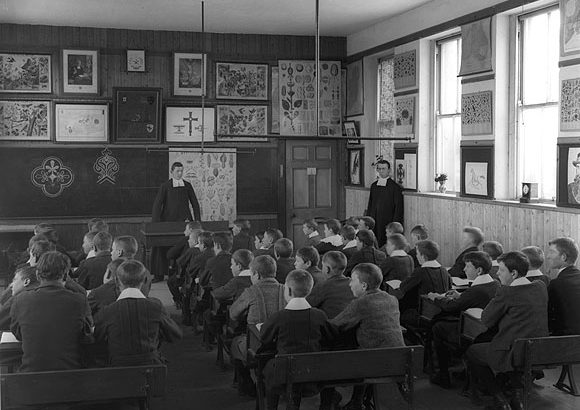Kindling the Flame: 150 years of the Irish National Teachers’ Organisation
by Niamh Puirséil (Gill, €24.99)
Daire Keogh
Media reports of the planned retirement of Sheila Nunan as general secretary of the Irish National Teachers Organisation have naturally focussed both on her personal achievement, as first female leader of her union, and the enduring influence of the INTO itself, in stark contrast to the waning fortunes of the wider labour movement.
The INTO was never merely a trade union, but a curious mix of professional association and educational lobby, and it is that hybrid nature which makes the sesquicentennial history of Niamh Puirséil [pictured right] such an engaging read. It reminds us, too, what a central role teachers have played in Irish society as a whole.
The timing of its foundation contributed greatly to the character of the INTO, as did the stature of its first president, Vere Foster. His dictum that “nothing is more important to the welfare of a nation than the education of its children”, has remained the mantra of the union together with its constant reiteration of the correlation between teacher quality and educational standards.
From the outset, the union fought the determined effort of the Board of National Education to “keep teachers down and keep them poor”, and of social elites to denigrate the status of teachers.
The context of the union’s foundation was the appointment of a committee of enquiry into national education in Ireland (The Powis Commission, 1868-70), and that process afforded the fledgling union an unprecedented opportunity to forge its reputation as the collective champion of the ‘profession’.
This history was commissioned by the INTO, but it never descends into hagiography or self-satisfaction. Author Niamh Puirséil is the daughter of a former president of the INTO, but she is an independent historian, and author of an acclaimed history of the Irish Labour Party 1922-73. The research for that project is evident in this volume and she is at her most confident in that chronological space.
The breath of the challenge is daunting, but she deftly crafts a broad analysis of the union’s story, developing themes of education, power, politics and gender within a chronological framework. Significantly, and uniquely amongst the teaching unions, the INTO is organised on both sides of the border and two chapters are devoted to an analysis of the union’s dilemma navigating a non-political, non-sectarian, agenda in a challenging landscape.
Power, and the control of education, is a constant theme and ‘the Church’ is never far from the focus.
From 1831, the National School system afforded particular influence to local patrons. As a consequence of unintended circumstances, the original plan for ‘mixed education’ was frustrated and a system emerged where teachers were paid by the state, but, as employees of the churches, were often at the mercy of priests or rectors.
Yet, the union’s response to individual cases was uneven and, the abandonment of John McGahern by the INTO is a striking illustration of the dynamics of power in 20th-Century Ireland and the abysmal failure of the state to assume appropriate oversight in the field of education. Yet while the John Charles McQuaid portrayed in this volume in the mould of Lord Voldemort, Puirséil’s analysis on the marathon teachers’ strike of 1946 offer a nuance to that general caricature.
Sheila Nunan’s foreword emphasises the strength, unity, and cohesion of the INTO today, but this history demonstrates that the national teachers were never as united and their choreographed annual conference suggested to the public.
What is striking is how the union addressed differences within its ranks. ‘Lady teachers’ were a case in point, and while women were admitted from the get-go, for too long their interests were sacrificed to those of the majority male membership who failed to support Catherine Mahon’s campaign for equal pay (1906), or to adequately oppose the Marriage Bar (1932).
A commitment to diversity and Inclusion is now an admirable hallmark of the INTO which, in 1982, was the first trade union in Ireland to appoint a full-time equality officer. Ironically, however, the new divide within the union is based not on gender, but threatening fissures have emerged as a consequence of the inferior conditions imposed on Newly Qualified Teachers by the FEMPI cuts to public service pay in 2011. The resolution of this matter may determine how the next history of the INTO will be written.
Kindling the Flame: 150 years of the Irish National Teachers’ Organisation tells the story of an incredible movement, an appreciation of which presents valuable insights into the history of Ireland more generally. Niamh Puirséil is to be commended on her achievement.
Prof. Daire Keogh is Deputy President of Dublin City University.



